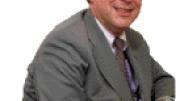Much about the College's appearance--undergraduate enrollment, the residential Houses--remains constant. But a sense of underlying vibrancy and significant change emerges in the "Report on Harvard College, 1995-2000," prepared by Harry R. Lewis, McKay professor of computer science, who has served as dean of the College since July 1995. The fact-filled overview, released in early January, documents, among other developments, proliferating extracurricular activities, shifting academic interests, and an undergraduate enterprise pushing the outer limits of the College's physical facilities. (The text is available at the College website, www.college.harvard.edu/dean/annualreport2000/.)
Lewis begins with a tip of the hat to the caliber of the undergraduates, appending a new superlative to their list of academic highlights: of 541 secondary-school students who scored perfect 800s on the SAT verbal and mathematics tests, 64 percent applied to the College class of 2004. (Not all were offered admission, he hastens to add in an interview.)
Along with rising academic talents, he says, "Over the past 20 or 25 years, our students are more distinguished by other talents as well--athletic, musical, dramatic, and so on." That has fueled a tripling in recognized extracurricular groups during the past two decades, to 275 today. But with a dozen dance groups, 11 dramatic groups, 28 music organizations (6 choirs, 9 a cappella groups, 7 orchestras, 1 band, 1 wind ensemble, and 4 others), demand for working space now outstrips the available supply, especially for activities requiring venues for large performances. Other demands are evident as well. "Twenty-five years ago, it was not part of the American norm to go stand on a treadmill for a couple of hours," Lewis says. Not wishing to discourage fitness, the College faces rising pressure to expand facilities and programs at the Malkin Athletic Center.
In the aftermath of random assignment to residences, student surveys reveal a high degree of satisfaction with upper-class housing--indeed, the once widely scorned Quad Houses now score more favorably than the mean for all Houses. Today, the report observes, "each House is the microcosm of the College as a whole that President Lowell had envisioned when he implemented the residential college system." Moreover, "it seems that the problems confronting minority populations...are now appreciated as the problems of each of the Houses, and not only the province of the Houses where those groups clustered in disproportionate numbers" before randomization. Undergraduate men and women express equal satisfaction with their residences, and with the College experience as a whole.
Lewis identifies two challenges for the House system. First, the College is "fully residential": nearly 4,800 upper-class students--96 percent of those eligible to move off campus--live in Houses ("A great blessing," Lewis says, compared to other campuses where many students live away). Rooming could be made more comfortable sooner, and more cheaply than by acquiring more space, if this population were reduced by 100--perhaps as a result of increased study abroad (see page 70). Second, he foresees major House renovations several deans hence, suggesting the need to plan for "swing space" while students are temporarily displaced.
Apart from eating, sleeping, and engaging in extracurricular activities, students are also pursuing an expanding number of fellowships and meeting with potential employers. Lewis documents surging use of the Office of Career Services, and demand by companies to recruit on campus far beyond Harvard's ability to accommodate and control the interviews.
Though academics are not directly in his purview, Lewis's report makes it clear that students still have time left to study. A review of concentration choices reveals lessened interest in English and American literature and language; an apparent shift from biology and biochemical sciences to psychology, perhaps fueled by the new mind, brain, and behavior program; and strong growth in computer science and history and literature.
Beyond his recommendations for improvements in physical facilities and for some additional support staff, and his account of changes in decanal and House personnel and procedures, Lewis highlights the area "where I'm most disappointed in what we have been able to accomplish." Since the Faculty of Arts and Sciences committee on advising and counseling was revitalized in 1996, Lewis has sounded the need for promulgating--and then meeting--minimum standards for academic advising. Referring to recent survey results, he concludes, "it is hard on the basis of these data to be encouraged by the direction of change." Several large concentrations--computer science, economics, government, history, psychology--appear barely able to satisfy the basic academic questions of even half their students. Lewis calls this performance "below the reasonable expectations of both students and faculty."
As the College inundates students with information and choices, Lewis worries about helping them make the most of their options. Better advising matters as much as the other kinds of student support he describes. In that spirit, the report concludes, "we want to work to ensure that we all see ourselves in a role of service and support to students, with the objectives of creating opportunities for them and solving their problems, and that the students with whom we come in contact see and understand us in that way, even when we have to deny their requests or deliver bad news. Our students are a great resource; they have come through the eye of the needle to arrive at Harvard, and we owe them the best education we can provide."






